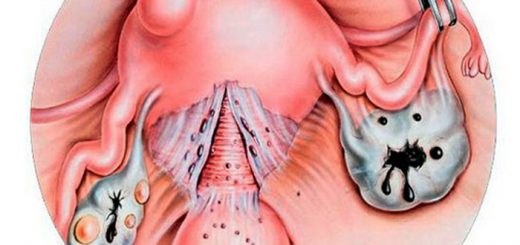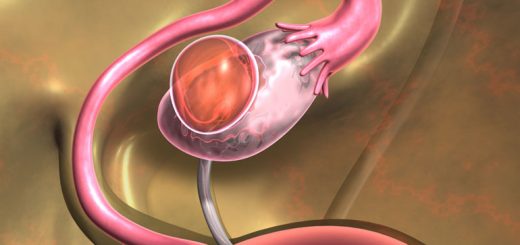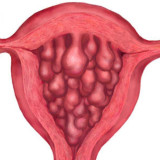Termination of reproductive function doesn’t mean all the related problems are no more a danger to a woman. Ovarian cyst after 50 years is still a threat. There are several things to know about the disease at this age. The possibility of ovarian cyst after menopause should not be ignored.
In recent years women older than 50 years have become to pay much more attention to their health than they do 10-15 years ago. After all, happiness is hard to imagine with the presence of serious health problems. And a large proportion of the patients are women after menopause. Approaches chosen to treat them differ significantly from those used in young girls. This is explained by the greater oncological alertness and presence of a larger number of associated illnesses.
According to statistics, ovarian cysts after 50 years have a high rate of malignancy. This fact is the reason to be very careful during the examination and treatment. Any ovarian cyst after menopause (or during the period) is an indication to perform surgery. The operation ensures prevention of future cancer development.
Ovarian cyst after 50 years – exceptions
The necessity to remove ovarian cyst after menopause is a general rule. But as with any rule, there are exceptions. What are they for an ovarian cyst after 50 years?
The problem is that with age some women get a whole bunch of different comorbidities. Cardiovascular, pulmonary, endocrine diseases are among them. All this significantly increases the possibility of complications during or after the operation. And in these situations the doctor should weigh risks. The question of what is more dangerous – cyst removal or the surgery – should be solved initially.
Modern laparoscopic surgery seems to be quite safe and not traumatic. Nevertheless, in the presence of serious comorbidities (especially cardiovascular and respiratory diseases) operational risks are multiplied. Therefore, the doctor examines the patient comprehensively and only then decides on the operation. If there is a low cancer risk and the complications risk exceed it, the cyst can be treated conservatively. Surveillance with regular ultrasound monitoring and blood tests on the level of cancer markers are to be held. They allow to keep the patient in safe and at the same time avoid surgery.
Why we can’t give up on the surgery of ovarian cyst after menopause
Sometimes patients are interested in why the operation is still considered as a way of treatment if there is the alternative which is observation approach. The suggestion to give up the operation seems logical at first glance. But it doesn’t comprehends a number of significant circumstances.
First, not all women are equally disciplined. There are often situations when the patient is not observed for several years. And during that time a lot can change. And secondly, an ovarian cyst after 50 may change sooner with time. It will cause the necessity to perform the surgery anyway. Careful as the monitoring is held, it can not prevent malignant changes in the tumor.
What more, during that surveillance time the patient become even older. Which means a new comorbidity can develop. And this increases the operational risks. Taking all together, monitoring of ovarian cyst after menopause (or in menopause) is rather an exception than the rule.
Extensive operations
Today there are also many discussions about the required extension of the surgery. Some experts believe that the surgeon must remove everything — uterus, cervix, ovaries, fallopian tubes — in menopause. This approach is justified by the same oncological alertness.
But there should be an individual approach in the matter of ovarian cyst after 50. Uterus removal is absolutely unreasonable if results of the examination show a low cancer risk. Saving more living tissues decreases the operation time, recovery and rehabilitation period, as well as the risk of complications. Therefore, in many cases it is sufficient to remove only the diseased appendages.
In short, the patient after 50 years requires more careful attention and individual approach.
The solution for an ovarian cyst after menopause
Laparoscopy of an ovarian cyst after 50 or in menopause has some differences from the traditional one. To remove the tumor surgeons use special tools and equipment. Even anesthesia is different from what the doctors use in young patients.














